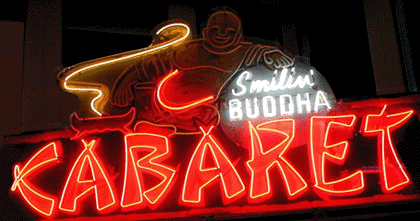Irwin Cotler, the internationally-renowned human rights lawyer, MP for Mount-Royal and Canada's former justice minister, is now working on grounds for an appeal that's intended to quash
all charges against our friend
Sallah Uddin Shoaib Choudhury, the Bangladeshi journalist.
"I've been able to identify some nine violations of his rights under Bangladesh law, violations of such magnitude that the charges should now be quashed even before the trial begins on the seemingly trumped-up card charges nonetheless," Cotler told Calgary radio host
Rob Breakenridge yesterday.
Cotler is working with Choudhury's Bangladesh lawyer,
Samarendra Nath Goswami, on an appeal of a Daka court's earlier denial of a petition to throw out the charges against Choudhury.
Choudhury's constitutional rights under the Bangladesh penal code have been clearly violated, Cotler said. Choudhury has been denied his right to protection against arbitrary arrest, to protection against illegal pre-trial detention, and on top that, Choudhury was "detained incommunicado effectively for seventeen months" until his release was secured after
representations by PEN and by parliamentarians in other countries. After his release, Choudhury was subjected to intimidation, beatings and threats, and then "another series of denials of rights then began to take place," Colter said.
Unfortunately, I don't have a link to Cotler's interview (a transcript was graciously provided to me by Cotler's office). It's too bad, because Breakenridge's show is worth listening to. You can sign up
here to get into the CHQR "audio vault," in which case you could listen to a conversation I had with Breakenridge on his show a couple of weeks back, which was prompted by
my column on Canada's "anti-war" movement and its oddly cozy relationship with reactionaries and Islamists.
Cotler told Breakenridge that it's no small irony that Choudhury is in trouble for allegedly having made Bangladesh look bad because of the rise of Islamist extremism in that country.
"It's Bangladesh that is having its image undermined by the nature of the false charges and the abusive prosecution. . . there are other parliamentarians, and the European Union passed a resolution protesting against these charges against [Choudhury].
American Congressmen have been involved. . . it is not even in the, if I can use the term, the self-interest of Bangladesh, you know, to continue with this case, apart from the fact that the very injustice of it warrants to the quashing of the charges."
Cotler distanced himself from suggestions that foreign-aid payments to Bangladesh could be held up in an effort to pressure the government of Bangladesh to back off on its persecution of Choudhury.
"I wouldn't like to see that the Bangladesh people would in any way, you know, suffer from any withdrawal of, you know, foreign aid, on our part, but certainly I think that the Bangladesh government should be concerned when this type of proceeding has really has an adverse impact on the overall relationship between Canada and Bangladesh."
Cotler is not unfamiliar with the problems Bangladeshis suffer in the country's court system. When he was Canada's justice minister, he initiated a joint Canada-Bangladesh "rule of law" project, which is ongoing. And many of Cotler's constituents are Bangladeshis.
"I would hope that those in authority in Bangladesh will see, as I say, for reasons of justice, for reasons of the Canada-Bangladesh relationship, particularly in the matter of the joint rule-of-law project, and for reason of their own self-image as a country that wants to be seen to be an evolving democracy that they would quash the charges."
Neither is Cotler unfamiliar with the difficult work of providing
humanitarian legal assistance from a distance. He's served as counsel for Russian dissident Andrei Sakharov, African freedom fighter Nelson Mandela, Russian environmentalist Aleksandr Nikitin, Nigerian playwright and Nobel Laureate Wole Soyinka, and Saad Edin Ibrahim, the leading democracy advocate in the Arab world.
Only last week, Cotler was in New York to provide some intellectual and moral weight to
the campaign to bring Iranian President Mahmood Ahmadinejad to the International Criminal Court to face charges of incitement to genocide. Here's Cotler last week, in top form:
















